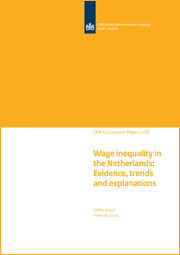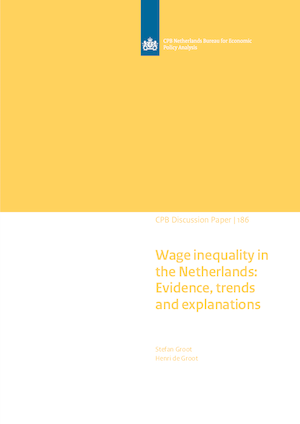Wage inequality in the Netherlands: Evidence, trends and explanations

For many years, the Netherlands has been considered an exception to the general trend of growing wage inequality that most OECD countries have experienced since the 1980s. This OECD trend is generally explained by increasing relative demand for skilled labour due to skill biased technological progress and – to a lesser extent – by globalization.
Using detailed micro data on the entire wage distribution in the Netherlands, this paper examines trends in Dutch (real pre-tax) wage inequality between 2000 and 2008. We show that the aggregate flatness of the distribution hides dynamics between different groups and regions. We find that inequality, after correcting for observed worker characteristics, decreased somewhat at the lower half of the wage distribution, while increasing slightly at most of the upper half (both before and after correcting for differences in human capital). Residual wage inequality is high and increasing in most larger cities, which is in line with recent evidence on the increasing importance of agglomeration externalities.
